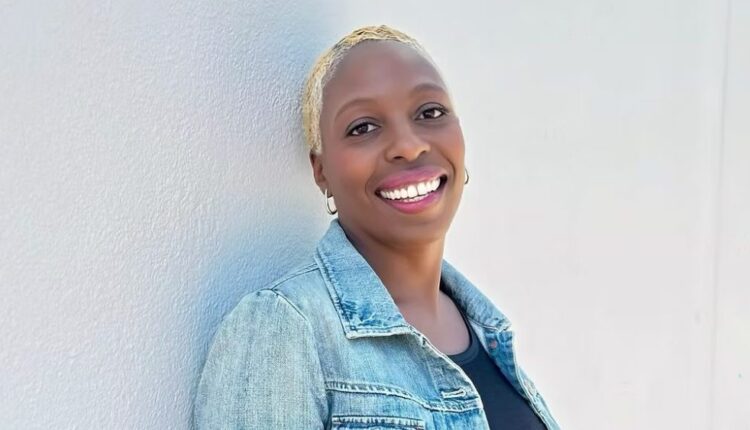If you purchase an independently reviewed product or service through a link on our website, Variety may receive an affiliate commission.
As many corporations have abandoned DEI programs and pledges during the past two years, veteran TV producer Candi Carter is at the forefront of a movement to use digital platforms to better support Black-owned businesses and underrepresented business owners. Carter’s latest venture also taps into the fast-growing sector of “shoppable TV” content.
Carter is the founder of Shop Red Bag, an online marketplace that bowed last month, on Juneteenth, featuring a curated collection of household goods from a diverse range of independent suppliers. The site is designed to help consumers be more intentional in directing their dollars to businesses that align with their values and principles.
“One of the things that was important to me as somebody who tells stories for a living is to make sure that their voices were heard,” Carter told Variety. “This isn’t just a website. This is a movement. This is where people can change their habits and defer their dollars.”
Corporate giants such as Walmart, McDonald’s, Starbucks, Chipotle, Lowe’s and Tractor Supply are among the retail and consumer heavyweights that have rolled back DEI-related pledges or goals made just a few years ago. In January, on the heels of President Donald Trump’s flurry of executive orders targeting DEI programs in the federal government, Target announced it would end its diversity, equity and inclusion initiatives.
Target soon faced backlash and organized consumer boycotts among some Black consumers for its about-face on its Racial Equity Action and Change (REACH) initiative. That program launched in April 2021 and called for the Minneapolis-based retailer had pledged to invest over $2 billion with Black-owned businesses by the end of this year 2025. The initiative included plans to add more than 500 Black-owned brands to Target shelves, as well as an innovative $25 million fund administered throught its in-house media buying arm, Roundel, to boost the public profile of those indie brands.
In May 2022, Target said it has “increased investments with Black-owned brands, companies and suppliers by more than 50% compared to 2020 and more than doubled Black-owned brand product offerings, with representation across every major product category.” It also disclosed that it had added more than 100 Black-owned brands, including beauty products, home goods, books, toys, apparel, accessories and food and beverage items.
Target’s reversal has sparked a prolonged consumer boycott supported by some prominent Black religious leaders, among other supporters of DEI principles. In response to the tumult, Carter created Shop Red Bag to address the void for Black entrepreneurs and business owners.
“It’s to support and uplift the brands, but it’s a two-fold mission,” Carter explained. “One is to get money in the pockets of these brands because by doing that, you then build the community. We’re in a precarious situation right now where all DEI is bad. My thing is, we’re not victims. As African Americans, if we can redirect our dollars to our community, then we can be quite prosperous over the next four years and beyond.”
As more and more consumer dollars are spent online, there’s opportunity in a focused marketplace for socially conscious consumers, Carter added.
“The other side of it is to give people a place to shop. We are turning the store into a bona fide option to Big Retail and allowing people to shop diverse brands and get the things that they need,” she said.
Shop Red Bag features brands such as Nicole Ari Parker’s workout sweatbands Gymwrap, Sky and KJ Smith’s coffee line BLACK, Vontélle Eyewear and dozens of across the categories of apparel, hair products, skincare, makeup, paper goods and more. Two weeks in, Carter said the response from customers and brands has been positive.
“Everybody is excited,” she said. “Everybody is like, ‘We needed this.’ When I talk to people, they tell me it’s great because they’ve been looking and don’t know where to go. It’s a relief for the brands because they desperately need the support. In addition to the rollbacks, they’re dealing with tariffs.”
Stepping into her CEO title is a new feat for Carter. For three decades, Carter worked as a producer and executive producer on some of daytime TV’s well-known programs, including “The Tamron Hall Show,” “The View” and “The Oprah Winfrey Show.” However, diving into e-commerce was familiar territory for her after she developed a specialty for producing shopping segments for daytime talk shows. Now she’s championing the marriage of content and commerce as a solution for networks looking for new forms of revenue.
“E-commerce is found money,” Carter said. “If you embed products in your shows and content, you’re not competing with ad time. Whatever you make from people buying while they’re watching your content is just a cherry on top.”
Carter founded her e-commerce company, Cistus Media, in 2024 to help networks and content creators monetize their audiences by building an online storefront with curated brands. Her current roster of clients includes BET, Warner Bros. Discovery, Black Star Network, Telepictures Productions and Revolt.
As media entities explore new avenues of revenue, the rise of shoppable TV is beginning to revolutionize the relationship between entertainment and e-commerce. Unlike traditional media channels such as QVC and HSN, Carter views shoppable TV as the future of e-commerce and entertainment, as it integrates purchasing directly into the viewing experience through streaming, live broadcasts, social media and other platforms where audiences consume content.
“I help people get that shirt the first time they see it at the point of discovery, when they’re sitting in the movie theater,” Carter said. “If you look at different shows, you’ll see Reddit threads with people saying, ‘Where did they get that in that one TV show?’ or ‘I’m looking for this purse from this show.’ Pop culture heavily influences the way we shop. You’ll see more integration of that in the future, and we hopefully will be leading the pack.”


